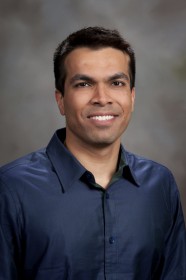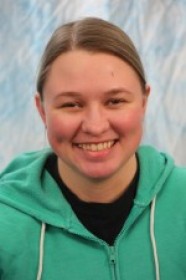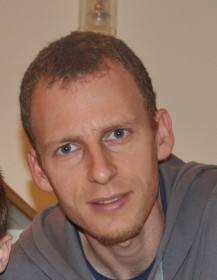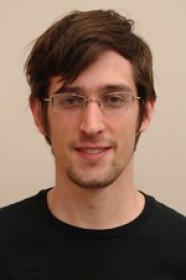Bio-Inspired Dynamic Surface Grasping
Event Location: NSH 1305Bio: Mark R. Cutkosky is the Fletcher Jones Professor in the Dept. of Mechanical Engineering at Stanford University. He joined Stanford in 1985, after working in the Robotics Institute at Carnegie Mellon University and as a design engineer at ALCOA, in Pittsburgh, PA. He received his Ph.D. in Mechanical Engineering from Carnegie [...]
Words, Pictures, and Imagination
Event Location: NSH 1109Bio: Devi Parikh is an Assistant Professor in the Bradley Department of Electrical and Computer Engineering at Virginia Tech (VT) and an Allen Distinguished Investigator of Artificial Intelligence. She leads the Computer Vision Lab at VT, and is also a member of the Virginia Center for Autonomous Systems (VaCAS) and the VT [...]
Hedging Against Uncertainty via Multiple Diverse Predictions
Event Location: NSH 1109Bio: Dhruv Batra is an Assistant Professor at the Bradley Department of Electrical and Computer Engineering at Virginia Tech, where he leads the VT Machine Learning & Perception group. He is a member of the Virginia Center for Autonomous Systems (VaCAS) and the VT Discovery Analytic Center (DAC). Prior to joining VT, [...]
Set-Based Design and Evolution
Event Location: GHC 2109Bio: Dr. Gideon Avigad has recently joined Vineland Research and Innovation Centre as Program Leader - Robotics & Automation. He has been a tenure at the Mechanical Engineering Department, Braude College of Engineering, Israel where he taught control and mechatronics related courses and led many robotics R&D projects. In the last two [...]
Computing with emotions
Event Location: NSH 1305Bio: Peter Robinson is Professor of Computer Technology in the Computer Laboratory at the University of Cambridge, where he leads the Rainbow Research Group working on computer graphics and interaction. His research concerns problems at the boundary between people and computers. This involves investigating new technologies to enhance communication between computers and [...]
Towards Next Generation 3D Cameras
Event Location: NSH 1507Bio: Mohit Gupta will start as an assistant professor in the CS department at the University of Wisconsin-Madison in January ’16. He is currently a research scientist in the CAVE lab at Columbia University. He received a B.Tech. in computer science from Indian Institute of Technology Delhi in 2003, an M.S. from [...]
The Optical Coherence Tomography Microsurgical Augmented Reality System (OCT-MARS): a novel device for microsurgeries
Event Location: GHC 4405Abstract: I am proposing the development and testing of a novel augmented reality system for stereomicroscopic surgeries. This system will allow surgeons to view real-time medical image data as an in-situ overlay within the surgical field. Our application for the device is in-situ intraoperative OCT during surgeries on the anterior segment of [...]
Inverting RANSAC: Global Model Detection via Inlier Rate Estimation
Event Location: NSH 1507Bio: Simon Korman is a Ph.D. student at the Department of Electrical Engineering at Tel-Aviv university, where he is advised by Professor Shai Avidan. Simon holds a B.Sc. in Mathematics and Computer Science from the Hebrew University of Jerusalem and an M.Sc. in Mathematics and Computer Science from the Weizmann Institute of [...]
Efficient Manipulation Task Planning via Reuse-Informed Optimization of Planning Effort
Event Location: GHC 6501Abstract: In order to assist humans with dangerous or menial tasks, autonomous robots will need to act under significant time and energy constraints. At task time, the amount of effort a robot spends planning directly detracts from its total performance. Manipulation tasks, however, present challenges to efficient motion planning. They are often [...]




.jpg)



